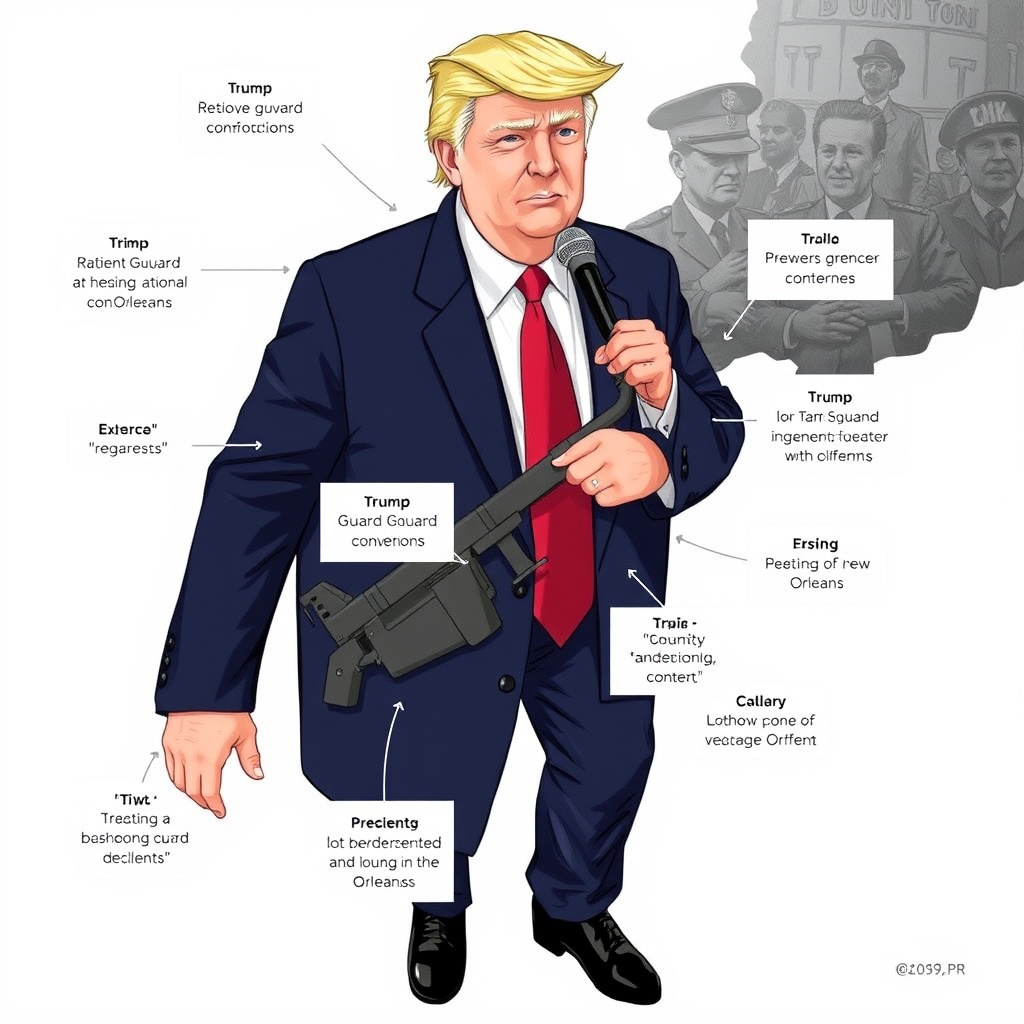Introduction
On September 3, 2025, President Trump sparked controversy by suggesting the deployment of National Guard troops to New Orleans, citing concerns over safety and security in the city. This proposal has ignited a heated debate about the role of the National Guard in maintaining law and order, the relationship between the federal government and state authorities, and the potential implications for civil liberties. In this article, we will delve into the context behind President Trump's proposal, examine the potential consequences of deploying National Guard troops to New Orleans, and explore the broader implications for the United States.
Context and Background
President Trump's suggestion to deploy National Guard troops to New Orleans is not an isolated incident. In recent years, the President has repeatedly expressed concerns about crime rates and public safety in major cities, often targeting cities with Democratic mayors or governors. For instance, in 2020, President Trump deployed federal agents to Portland, Oregon, and other cities to quell protests and unrest, sparking widespread criticism and allegations of overreach. The current proposal to deploy National Guard troops to New Orleans appears to be an extension of this trend, with the President seeking to assert federal authority and address perceived safety concerns.
The city of New Orleans has indeed faced challenges related to crime and public safety. According to data from the FBI, New Orleans has one of the highest murder rates in the United States, with 45.8 murders per 100,000 residents in 2020. However, it is essential to note that the city has also made significant progress in reducing crime rates in recent years, with a 10% decline in overall crime between 2019 and 2020. Moreover, the New Orleans Police Department has implemented various initiatives to improve community policing and build trust with local residents.
Potential Consequences of Deployment
The deployment of National Guard troops to New Orleans could have far-reaching consequences for the city and its residents. On one hand, the presence of National Guard troops could potentially help to deter crime and improve public safety, particularly in high-crime areas. For example, in 2015, the National Guard was deployed to Baltimore, Maryland, to help quell riots and unrest following the death of Freddie Gray. The deployment was widely credited with helping to restore order and prevent further violence.
On the other hand, the deployment of National Guard troops could also have negative consequences, including the potential for increased tensions and conflict between law enforcement and local residents. The use of military personnel to enforce law and order can be perceived as an overreach of federal authority, particularly in cities with strong community policing initiatives. Moreover, the deployment of National Guard troops could also undermine the authority of local law enforcement agencies, potentially creating confusion and duplication of efforts.
A case study of the 1992 Los Angeles riots highlights the potential risks and challenges associated with deploying National Guard troops to urban areas. During the riots, the National Guard was deployed to help restore order, but the deployment was criticized for being slow and ineffective. The use of military personnel also led to allegations of excessive force and human rights abuses, further exacerbating tensions between law enforcement and local residents.
Broader Implications and Concerns
The proposal to deploy National Guard troops to New Orleans raises broader concerns about the role of the federal government in maintaining law and order, particularly in cities with Democratic mayors or governors. The use of National Guard troops to enforce law and order can be seen as an attempt to assert federal authority and undermine local control, potentially creating a precedent for future interventions.
Moreover, the deployment of National Guard troops could also have implications for civil liberties, particularly in communities of color. The use of military personnel to enforce law and order can lead to increased surveillance, harassment, and intimidation of local residents, potentially exacerbating existing social and economic inequalities. For instance, a study by the American Civil Liberties Union (ACLU) found that the deployment of federal agents to Portland, Oregon, in 2020 led to widespread allegations of excessive force and civil rights abuses.
In conclusion, the proposal to deploy National Guard troops to New Orleans is a complex and contentious issue, with potential consequences for public safety, civil liberties, and the relationship between the federal government and state authorities. While the deployment of National Guard troops could potentially help to deter crime and improve public safety, it is essential to consider the potential risks and challenges associated with such a deployment, including the potential for increased tensions and conflict between law enforcement and local residents.
Conclusion
As the United States continues to grapple with issues of public safety, crime, and social inequality, it is essential to approach the proposal to deploy National Guard troops to New Orleans with caution and careful consideration. Rather than relying solely on military personnel to enforce law and order, it is crucial to invest in community-based initiatives and programs that address the root causes of crime and social unrest. By working together with local law enforcement agencies, community organizations, and residents, we can build safer, more just, and more equitable communities for all. Ultimately, the decision to deploy National Guard troops to New Orleans must be guided by a commitment to protecting civil liberties, promoting community policing, and addressing the complex social and economic challenges facing our nation's cities.


Leave a comment